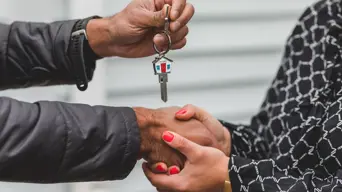Co-signing a lease for loved ones can go horribly wrong
Tasleem Gierdien
20 October 2025 | 9:34Gary Phelps from ICON Property Group explains that co-signing a lease or bond means you are ‘part and parcel’ of the legally binding agreement.

Pexels: Rdne Stock Project 8293778
Co-signing a lease for someone close to you may seem like a helpful gesture, especially if they can’t qualify for a property on their own. But experts warn that the risks can be serious - from legal summons to a damaged credit record - if the primary tenant defaults.
For example, party A wants to rent a property but is not financially qualified and asks party B, who won't reside there, to sign the lease, so that party A looks like a better applicant.
"Co-signing a lease or bond means you are part and parcel of this legally binding agreement," explains Phelps.
"We've seen it over the years, the mother signs, the aunt signs, the boyfriend signs, the friend signs and the person defaults, and the moment you're summoned, both people are cited in the summons, and both people have got to defend the summons. Things can go horribly wrong.
"What guarantee is there for the person co-signing that they're going to uphold the rent, responsibilities and other expenses? It's a very risky decision to make," Phelps believes.
"It does also have a negative impact onyour credibility, so I would caution people to really think carefully before co-signing for a lease purely on the basis that you're not going to live there, purely so that the other party can, on paper, look like they can afford the property they are applying for.
"The main thing is that people are upfront when co-signing and disclose that information with the landlord, who has the final say to enter into the lease agreement.
"One must approach these matters with caution because there are risks."
To listen to Phelps in conversation with Africa Melane on CapeTalk and 's Early Breakfast Show, use the audio player below:
Get the whole picture 💡
Take a look at the topic timeline for all related articles.
















